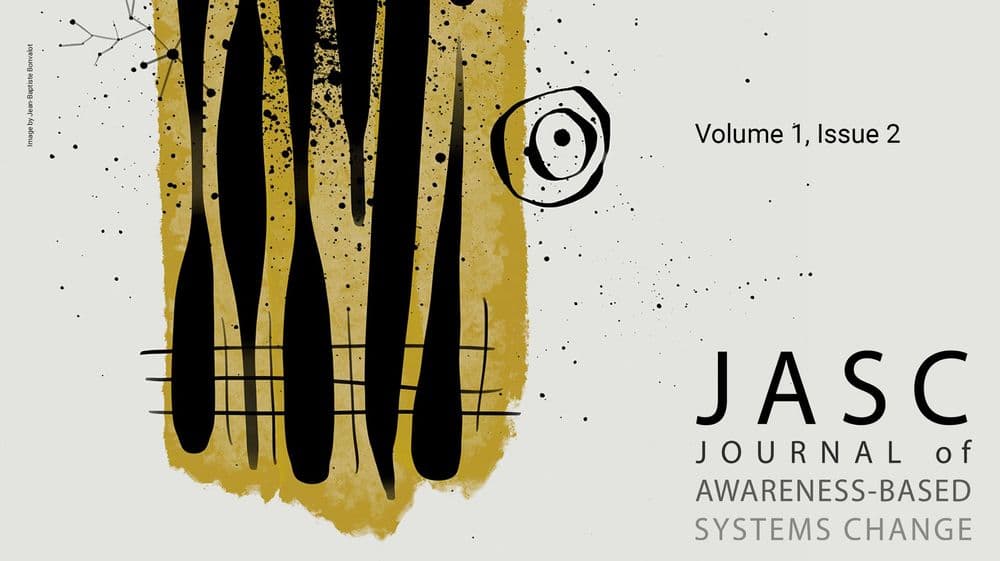
Moving From Transactional To Relational: Volume 1, Issue 2
Journal of Awareness-Based Systems Change - Issue #2
We're excited to share the release of the second issue of the Journal of Awareness-Based Systems Change (JASC). This completes the first volume, which since its launch just seven months ago, has already had 17,343 views and file downloads.
Our intention, as shared in the editorial of the inaugural issue is,
To develop a platform that makes visible the growing body of trans-disciplinary work supporting and advancing systems change through awareness-based methodologies and approaches.
We want to make visible and advance through applied studies and theoretical development, and methodological innovation, the process of deep systems change.
Integral to this intention are two underlying assumptions:-
- The knowing needed to inform effective, sustainable change, extends beyond the rational-cognitive realm, to include embodied, relational, aesthetic, and sensorial knowing.
- Systems change is only possible if we make visible two interconnected cycles at play in social reality creation - the regenerative forces and capacities of Presencing as well as the destructive counterpart of Absencing.
- Our task then is to examine power - where it lies, how it shapes our systems and structures, and how it is experienced, both inside and between us.

More than half a year has passed since the release of our inaugural issue in March 2021 and the world is still under the collective grip of the global Covid-19 pandemic and polarization has reached worrying new heights. The dangerous compromise of the COP 26 UN Climate Change Conference in Glasgow with the announced targets leading the earth to a 2.4-celsius temperature increase by the end of the century, and the largest single delegation in attendance not a sovereign nation state, but lobbyists from the fossil fuel industry.
It is clear that the threshold facing humanity is more evident than ever, and the need to act collectively, generatively, and systemically is increasingly urgent.
The articles in this edition of the Journal speak from or to an emergent and relational body of knowing, and they regard this knowing as the source of right action that serves the well-being of individuals, organizations, communities and the planet. In doing so, they suggest ways forward. Be it in our ways of thinking, or by providing concrete and potentially actionable ideas, they offer possible means to tap into and activate what lies available as dormant possibilities (potentialities of becoming), in people and in the systems they shape together.
Our questions remain:
- What can lead us out of the self-inflicted deadlock and polarization?
- How can we find ways to succesfully meet the challenges of the Anthropocene in the 21st century?
Our editorial (of which this is a small extract), is entitled "Moving From Transactional To Relational," as we read this as one of the central themes running through all the contributions in the second issue, in different permutations.
Bracketing the contributions from this issue, the opening "Commentary From The Field," and closing "In Dialogue" sections both speak to issues of social and racial injustice and to the historically created in-built mindsets and practices within our political and cultural institutions that sustain them.
As we put this second issue out into the world, we do so holding our initial intention to make visible and accessible the knowledge base needed to face our current challenges through awareness-based systems change. We invite you to experience each contribution as a manifestation of that intention - as pieces of the larger picture of societal regeneration of which we are all a part.
We do hope that you enjoy it and as always we invite your comments, feedback, and reflections.
- Oliver, Eva, Megan & Otto
(The Editorial Team)
To register & read the Journal, please click here
Cover Image Credit: Jean-Baptiste Bonvalot